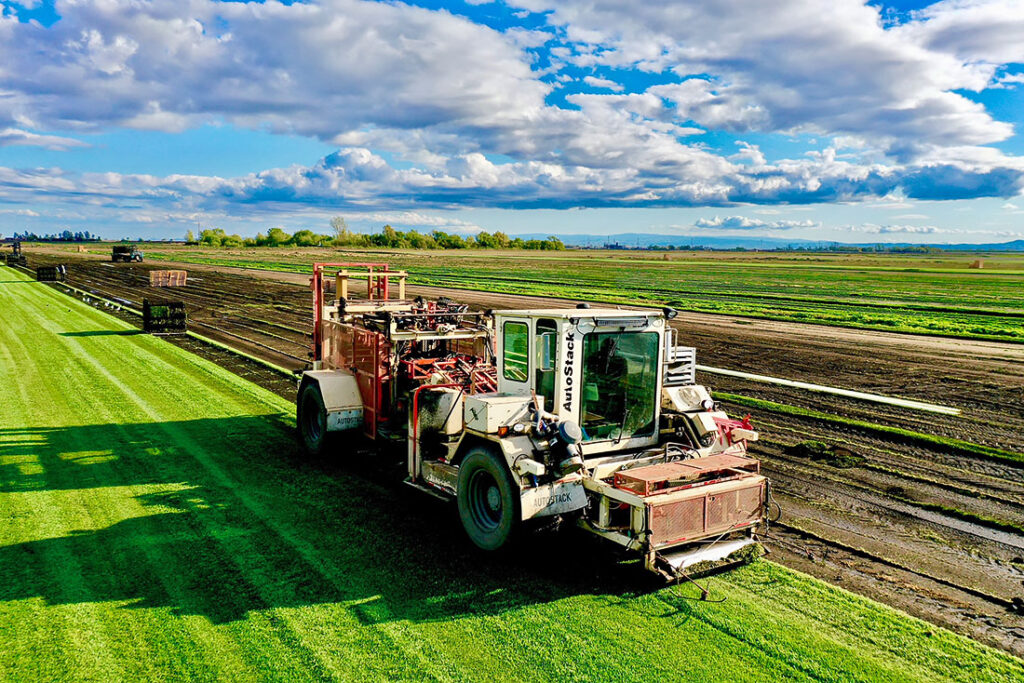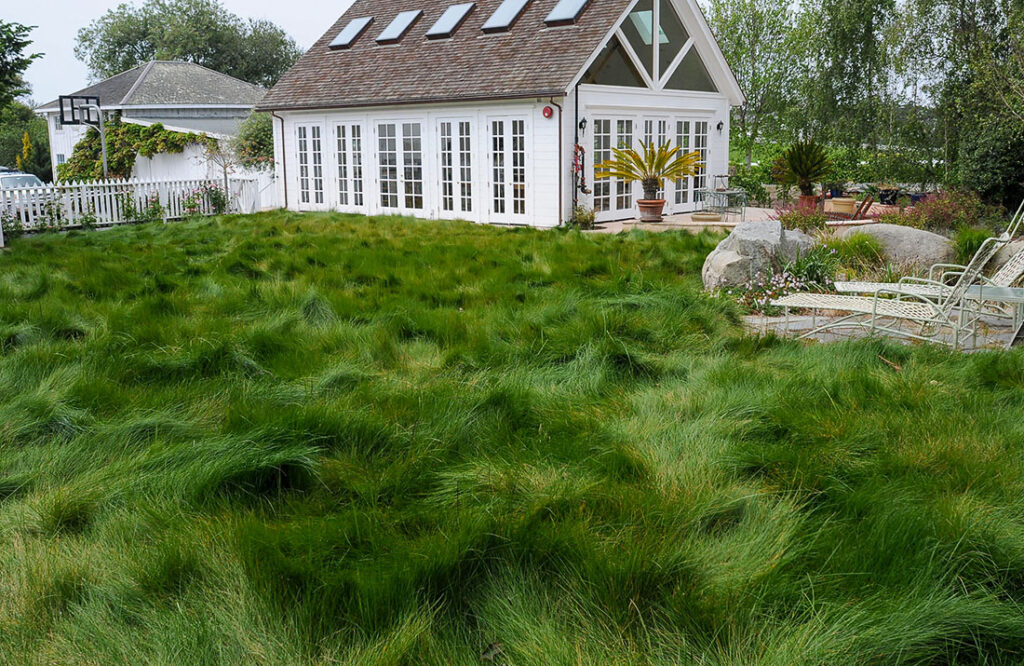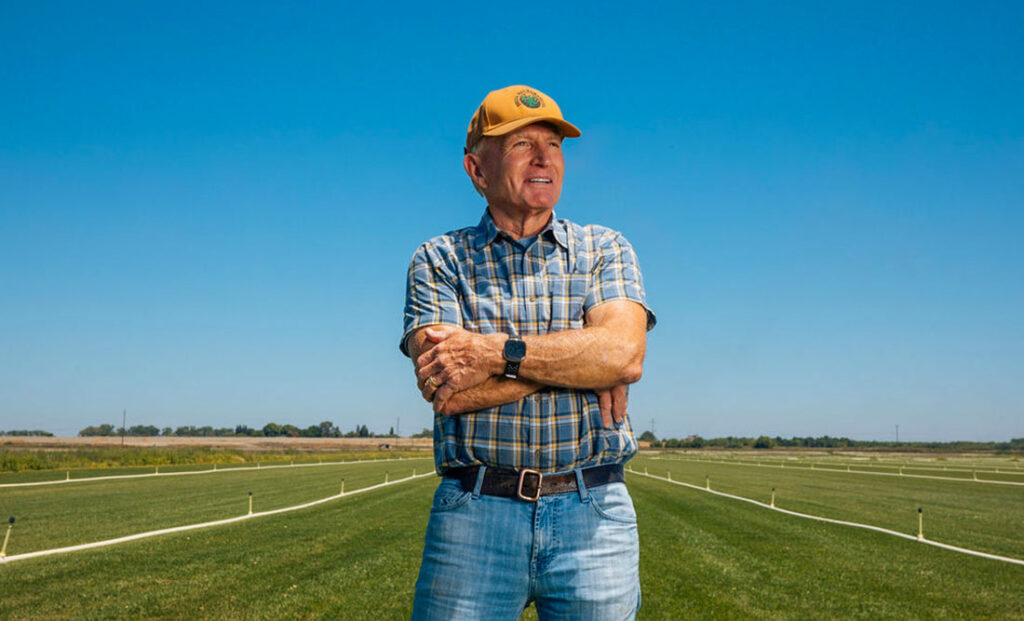Maximizing Resources
The Benefits of Water-Saving Sod in California's Delta
Sponsored Content

When you think about sustainable landscaping in California, the choice of grass or turf can make a significant difference. For decades, Delta Bluegrass Company has been pioneering in this area on McDonald Island and Terminous Tract. Celebrating 45 years in business, this Stockton-based company offers a range of sod solutions—from commercial and residential to sports turf and native grasses. Driven by a vision for water-sensitive landscaping, owners Ed Zuckerman and Dennis Gardemeyer started a Native Sod program backed by extensive research and cutting-edge farming practices.
“Delta Bluegrass Company’s commitment toward the development of native California water-conserving sod alternatives is laudatory. Their California Native Sod Program answers our plea as landscape architects for new and innovative alternatives in the sod industry that advance environmental sustainability in our thirsty state. We applaud the vision and efforts that Delta Bluegrass Company has invested in bringing us to this threshold of new possibilities for the environments we design.”
Thomas Klope, American Society of Landscape Architects
In California, native plants and grasses hold a particular value. These are species that have thrived in the region long before the arrival of European settlers, without the need for human intervention. Due to urbanization and the invasion of non-native species, however, native flora has been in decline. But the reasons to protect and cultivate native plants are compelling. They are specially adapted to local soil conditions and require fewer resources like water and fertilizer. More importantly, they support local ecosystems, providing food and shelter to native wildlife such as insects, birds, and butterflies.

California Native Sod, a special category of turf, embodies these ecological benefits. It requires significantly less water, aligning with the state’s need for water conservation. Additionally, the maintenance needs are considerably lower. Depending on the aesthetic you desire, you can either mow it frequently or opt for a natural meadow look with seasonal mowing.
“People are under the impression that these sod forms are installed because of their water conserving characteristics. However, more importantly, they are the planet’s atmosphere,” says Ken Coverdell of Blue Sky Designs.
“Small motors on lawn mowers often produce the same emissions in one hour of operation that moderately fuel efficient automobiles emit in driving them over 350 miles. Edgers and blowers are even worse creating the same emissions in one hour that the car would traveling 1000 miles. This carbon fact is much more significant for our environment.
Converting our lawn to an even less thirsty one and utilizing a native plant palette in our nursery and home resulted in more careful water management.”
Additionally, the peat soil of McDonald Island offers many benefits. This highly organic soil provides a great crop base for turf because the peat is rich in nutrients compared to other soil types. The nutritional value allows the sod to interface well with any soil type, thus providing extra sustainable value.
Family farming for over 12 decades in the Delta has allowed for new crops and a platform for research to enhance the California landscape. A dedication to the land, the ecosystem and ever-changing environmental conditions creates solutions for generations to come.

The President of Delta Bluegrass Company, Ed Zuckerman, points out that “you need to look at these varieties through rose colored glasses. It is not the traditional grass you see in perfectly manicured yards. We wanted to grow these varieties to help create options for water saving landscapes.”
###
Jodie Sheffield is the Sod & Seed Specialist in charge of Research and Development for Delta Bluegrass Company located in Stockton, California. With over 35 years of experience in the Turfgrass Industry, Jodie has worked with plant breeders, seed producers and research facilities throughout California and the Pacific Northwest developing premium quality turfgrass Sod. With emphasis placed on water conservation, Jodie is working towards creating awareness of the vital importance of climate appropriate landscaping and is enthusiastically spreading the word about the use of California native grasses in the urban landscape. She serves as Treasurer on the Board of Directors for the California Native Grasslands Association Married for 38 years to David, she has a son named Brandon and a daughter named Miranda and has 6 energetic grandchildren!

Leave a Reply